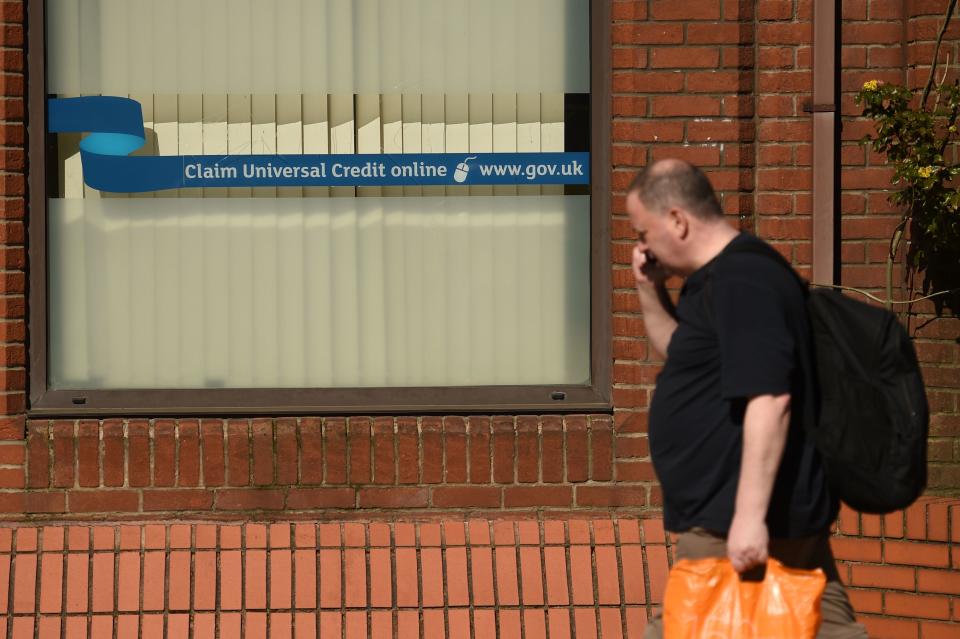UK trade unions and small firms join forces to prevent benefits cut for self-employed

The Trades Union Congress (TUC) and the Federation of Small Businesses (FSB) have urged the government to halt a planned cut in Universal Credit support payments to thousands of self-employed.
A second lockdown will leave thousands of UK self-employed in the lurch, according to the FSB and TUC.
Prime minister Boris Johnson on Saturday announced a host of new measures aimed at curtailing the rising number of COVID-19 infections, including a four-week England lockdown from 5 November until 2 December.
The measures mean that pubs, cafes and restaurants will shut, except for takeaway and delivery services. but schools and colleges and construction sites will remain open.
Johnson also announced that the furlough scheme, also known as the coronavirus Job Retention Scheme, has been extended until December, as the UK economy braces for a second lockdown in England due to start on Thursday.
This means that the government will continue paying up to 80% for the wages of employees whose businesses were forced to close.
Currently the self-employed can claim just 40% of their earnings, compared to 80% for employees through the extended furlough scheme.
UK’s trade and small firms bodies have written a joint letter to the Work and Pensions secretary, Thérèse Coffey, raising “serious concerns” over the benefit cut for those seeking to earn a living by starting and growing their own business.
From 13 November, the Department for Work and Pensions (DWP), will reinstate the Minimum Income Floor (MIF) — a formula that assumes a level of income when assessing how much Universal Credit a claimant will get.
READ MORE: What the furlough scheme extension means
FSB National Chairman Mike Cherry said: “Universal Credit was never designed around the self-employed, who often feel like square pegs forced into round holes.
“Suspending the MIF for COVID has therefore been both welcome and crucial. As the second wave of this crisis hits, and further decimates income, the removal of the suspension assumes that the self-employed are not affected by restrictions and that their earnings aren’t affected if they need to self-isolate or fall ill," Cherry added.
When the pandemic first hit in March, the government suspended the MIF so that individuals could claim benefits based on their actual income.
This means the DWP calculates Universal Credit based on what an employed person working a full-time 35 hour week while on National Minimum Wage, would receive in similar circumstances.
The Institute for Fiscal Studies (IFS) has estimated that around 450,000 self-employed workers are negatively impacted by the MIF, losing an average of £3,200 ($4,150) a year each, because of the policy.
With the scheme due to be reinstated just as England enters a second national lockdown, self-employed people who could earn below the MIF will see their benefits payments cut.
Individuals affected by its reintroduction have been eligible for aid during COVID-19 under the Self-Employed Income Support Scheme (SEISS).
READ MORE: Coronavirus: England goes into second lockdown for one month
TUC General Secretary Frances O’Grady said: “Self-employed workers have been particularly hard hit by the pandemic. With restrictions stepping up again, it’s a disastrous time to cut this lifeline.
“It will mean a surge in unemployment and severe damage to sectors like live events and creative industries,” O’Grady added. “The economic damage is bad enough, but it would be tragic for Britain’s cultural life too.”
Meanwhile, senior cabinet minster Michael Gove has hinted that self-employed workers could be given additional financial support after the furlough scheme was extended till December.
Chief executive of the Association of Independent Professionals and the Self-Employed (IPSE), Derek Cribb, urged the government to do more to “fix the unfair disparity between employee and self-employed support.”
Cribb pointed out that thousands lost their freelance businesses and were forced on to Universal Credit, he added: “This cannot stand as we enter a second national lockdown.”
Watch: In full: PM announces lockdown in England

 Yahoo Finance
Yahoo Finance 